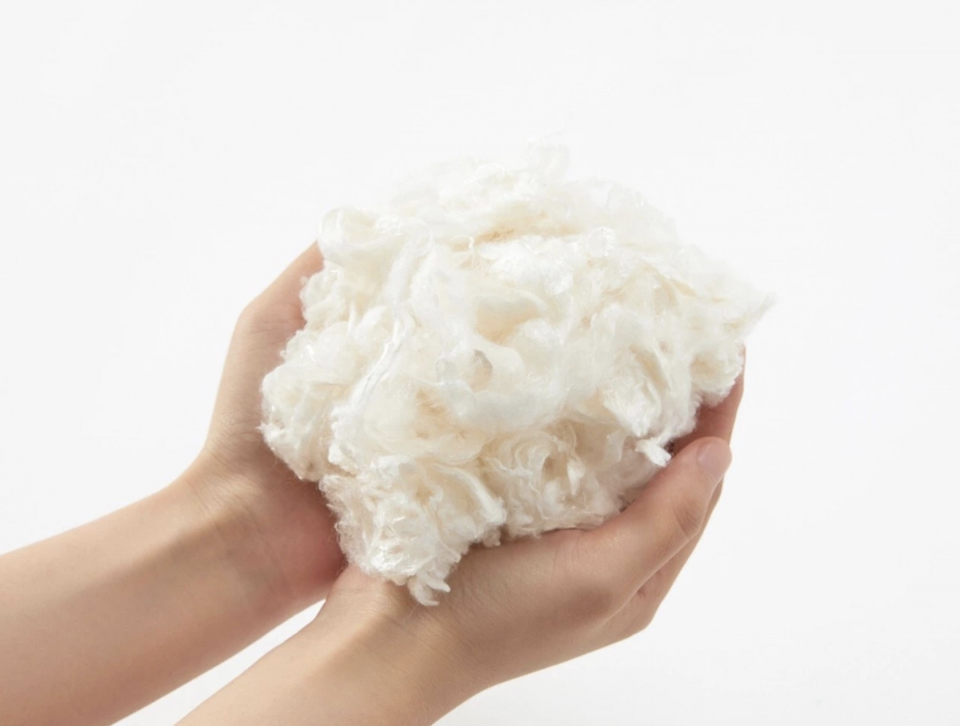As we become ever more aware of the devastating impacts of the fashion industry on our planet, we are seeing an increase in new and innovative ways to create sustainable clothing by recycling waste.
Food and agricultural waste is proving to provide excellent materials for making low impact fabrics and garments. This approach touches two fundamental global sustainability goals – reducing waste and minimizing the negative environmental impact of the fashion industry.
As such, in recent years we have seen the rise of a new generation of sustainable startups creating materials from waste. Examples include fabric created from orange fibre, a leather-like material made from pineapple leaves and sneaker soles made from used coffee grounds.
Now, Mi Terro, a Los Angeles-based startup aiming to shine a light on the amount of waste produced by the dairy industry, is creating sustainable fabrics from unused milk.
That’s right, milk.
“Do you know that 128 million tons of dairy products are dumped every year globally? I am really upset by such a tremendous amount of dairy waste,” Mi Terro founder Robert Luo told Forbes. “Our goal is to educate the public that we are consuming too many dairy products and we need to cut down on our food waste.”
The company sources excess milk from a partnering dairy farm in China and then transforms it into fibres used to make lightweight and durable t-shirts.

Raw milk is refined through a manufacturing process to create fibres.
The process involves skimming milk to remove fats before de-watering it to become powdered milk. It is then dissolved and purified to remove and substances that are not casein—the proteins that make up a large proportion of milk.
Once the casein is isolated, it is immersed in an alkali solution and passed through a spinneret to solidify the proteins into fibres. After this, it is removed from the alkali solution and the fibres are stretched, spun into yarn and ready to be used in the manufacturing of clothing.
The entire milk-to-shirt process apparently takes two months, with one glass of milk corresponding to five shirts.
Mi Terro says that the final fabric is silk-like and three times softer than normal cotton.
According to Luo, there are only two companies in China capable of transforming milk into fabric. Thus, the company plans to find new avenues to source unwanted milk.
“Our next step is partnering with supermarkets, so we can collect the so-called expired, or past sell date, milk from them.”
Mi Terro’s Kickstarter for its upcycled milk shirt was funded within two hours of launching and will continue to be open for pledges until September 15, 2019.
As well as finding a fashionable use for old milk, Mi Terro also makes travel bags from natural cork and recycled ocean plastic.
Proving that the company has sustainability at the heart of their business, Mi Terro partners with the Eden Reforestation Project to plant 10 trees for every product they sell, planting over 2,700 so far.
Their goal is to plant one million trees within the next five years.
